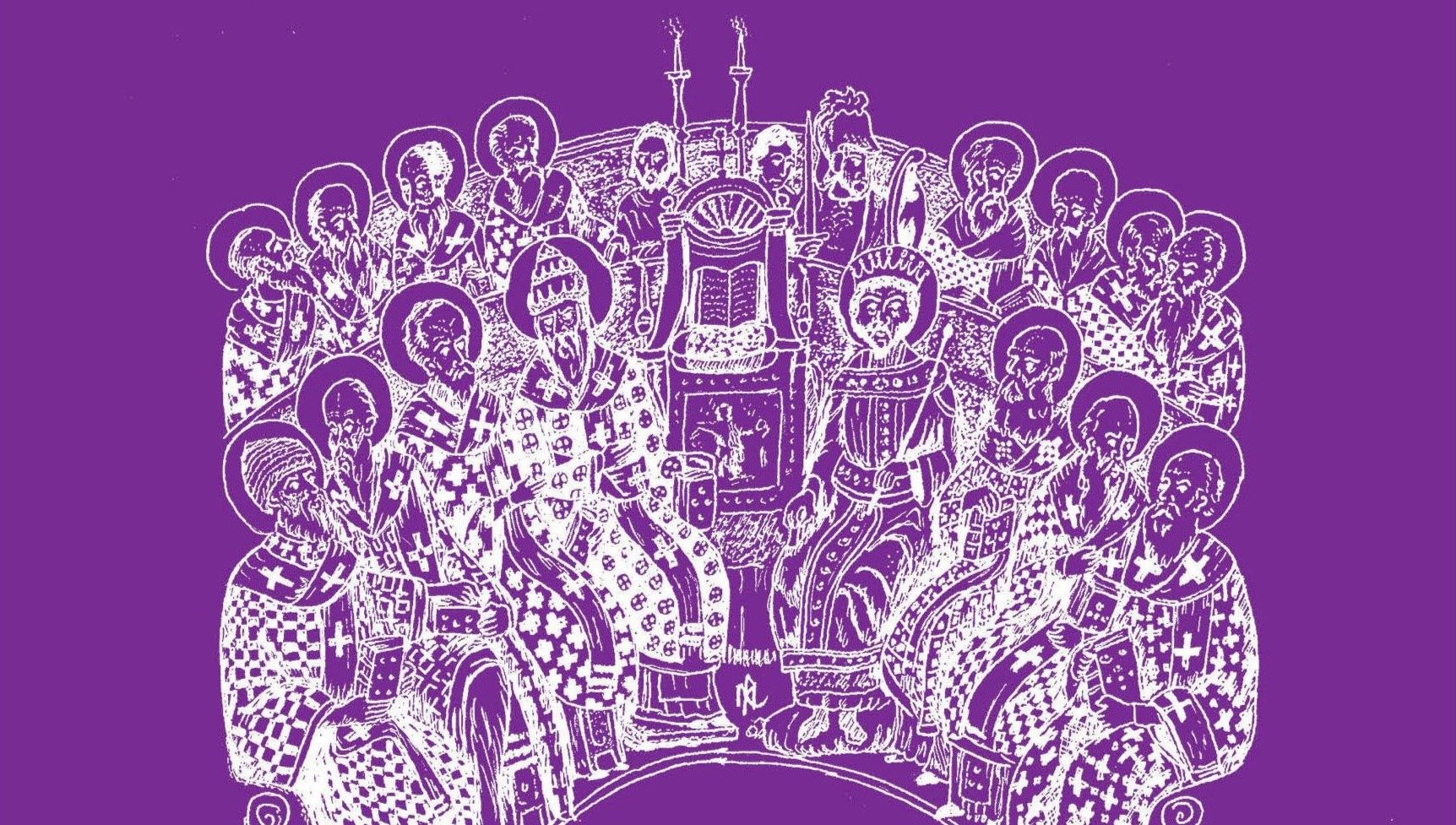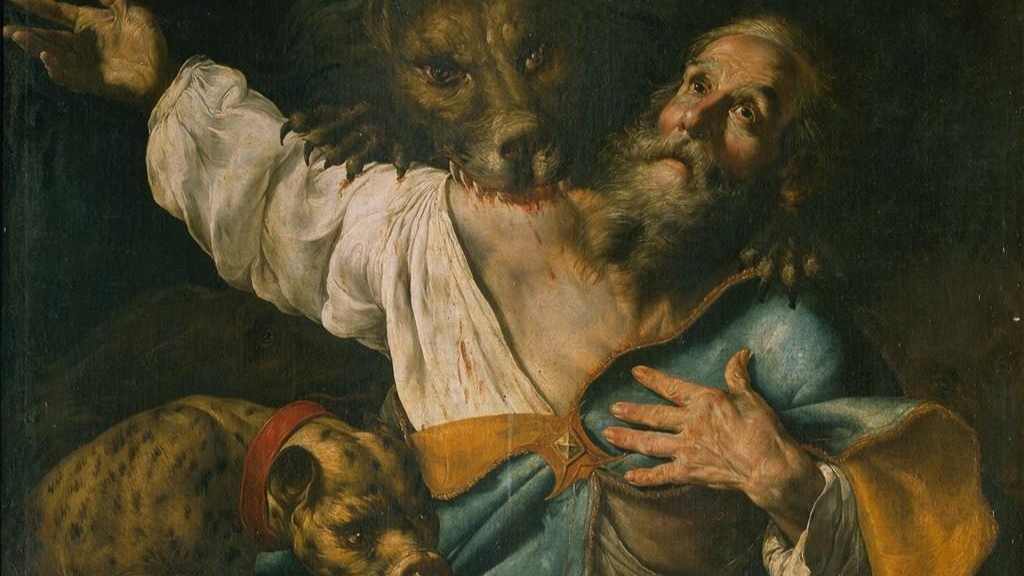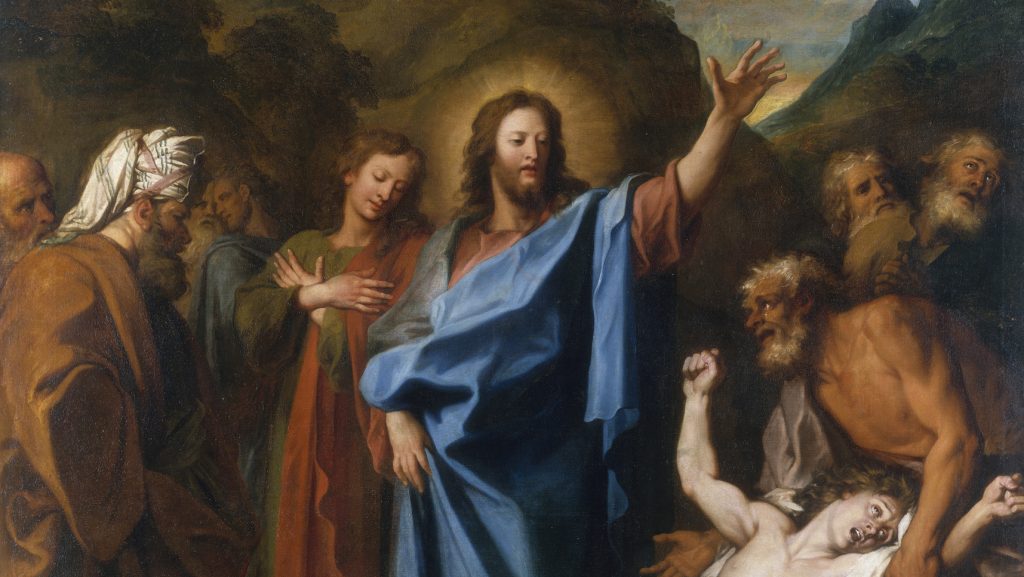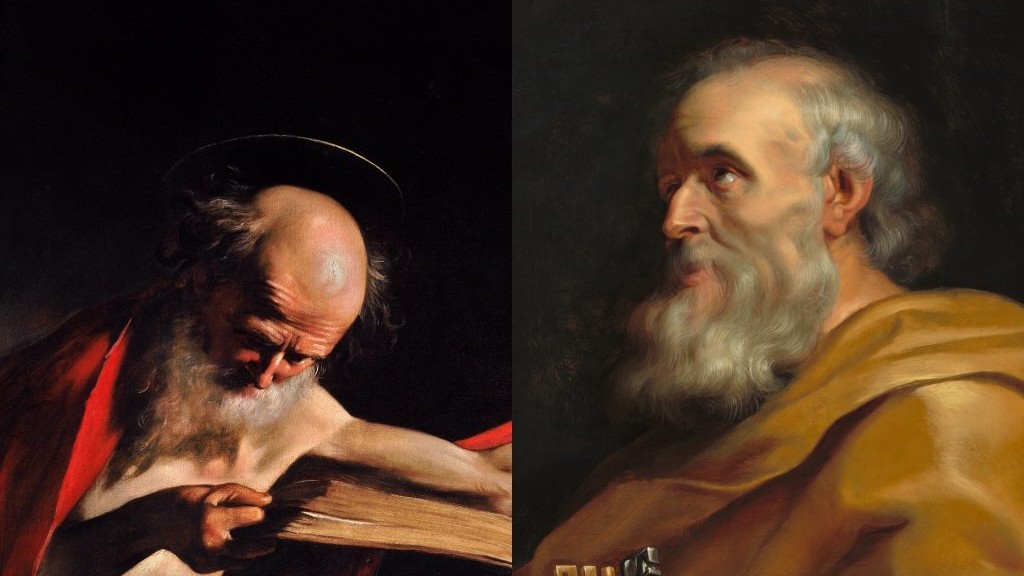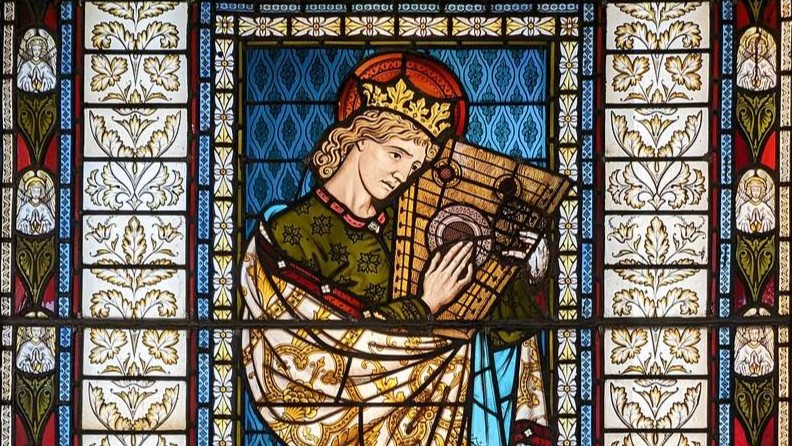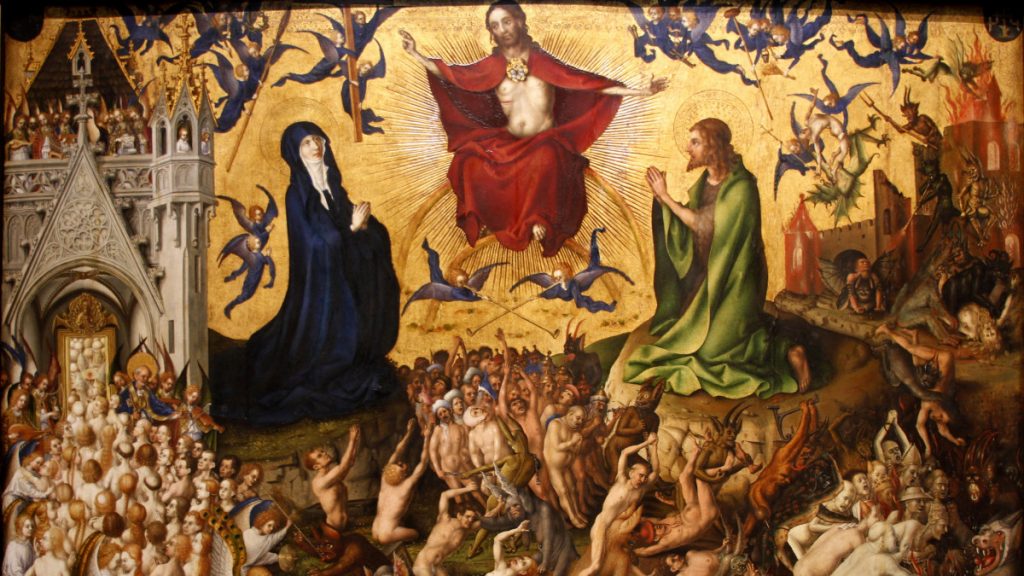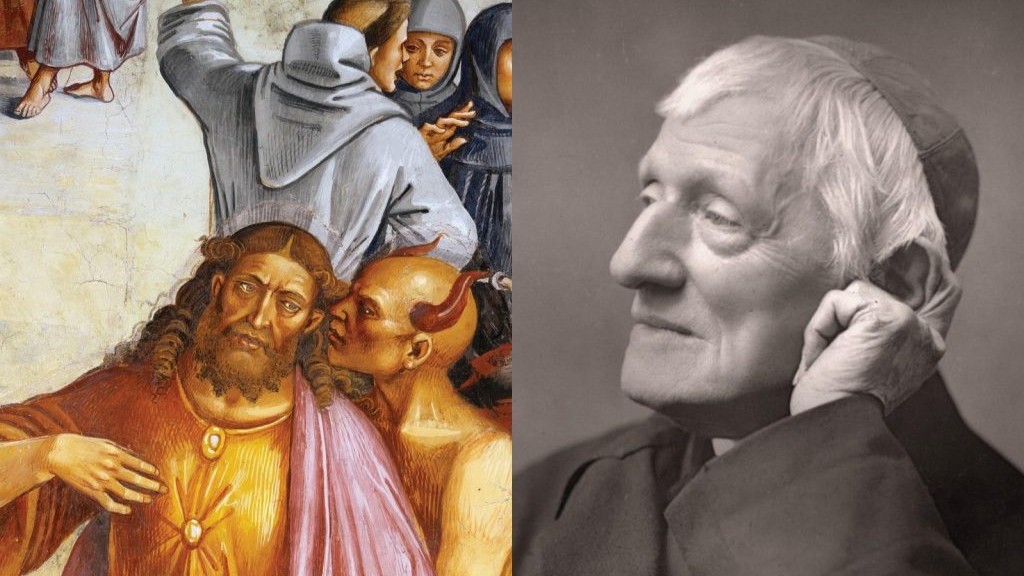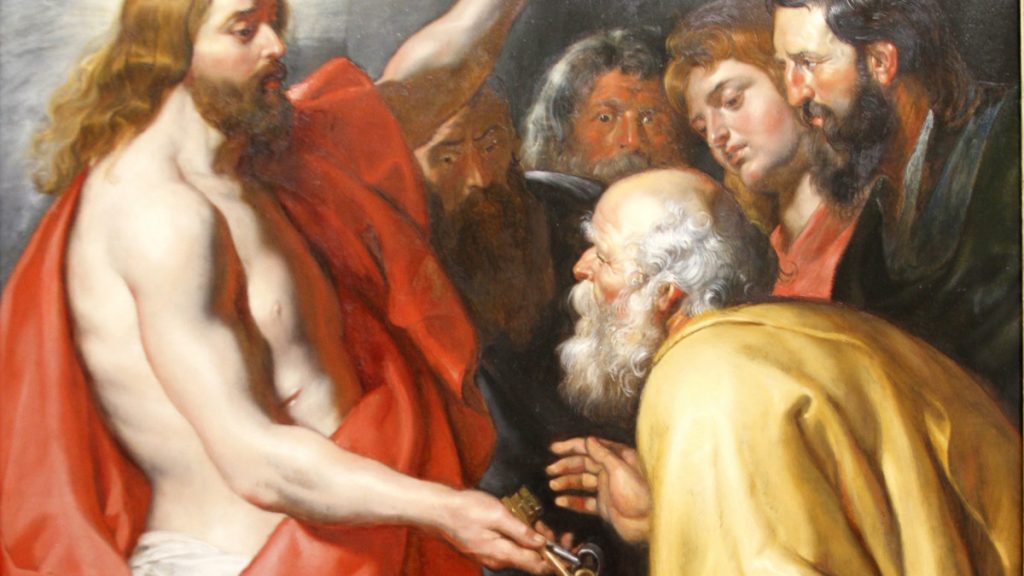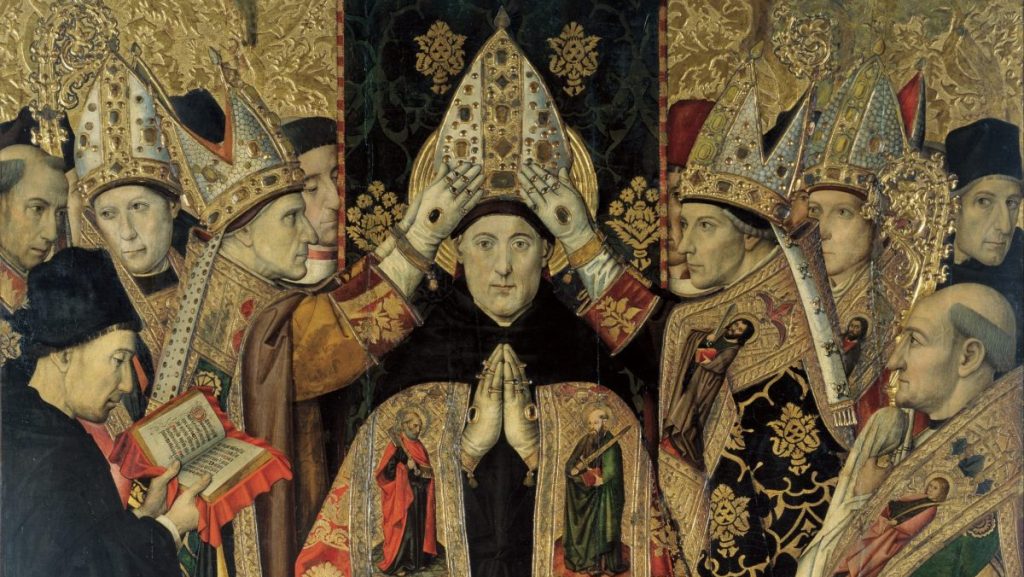Relevant Resources
- Quote Archive | The Papacy and the Invincibility of the Church
- Study Bank | The Ancient Lists and Testimonies of Popes Succeeding from Peter
Roadmap
This “Papal Snapshot” covers the assertions about papal authority by two ancient voices from the east at the Lateran Synod of 649: bishop Stephen of Dora, and St. Sophronius of Jerusalem, the patriarch of Jerusalem under whose authority Stephen was acting.
Our Roadmap is as follows:
- Our thesis is that Stephen of Dora’s testimony in the second session of the Lateran Synod of 649 shows ample evidence of a Catholic conception of the papacy among many in the east, including St. Sophronius, the Patriarch of Jerusalem, who Stephen was representing and had sent him to Rome. We will show this by:
- Providing historical context for Stephen’s testimony at the Lateran Synod; then
- Quoting relevant portions of his testimony; then
- Summarizing the conclusions we believe can be reasonably inferred from this testimony.
Historical Context
The mid-600s saw the rise of yet another heresy in the east, Monothelitism, which proposed that there was only one will in Christ. This contradicted the orthodox position that in Christ there were two wills, one divine, the other human. Monothelitism was later condemned by the Ecumenical Third Council of Constantinople in 680.
Unfortunately, however, Monothelitism caused quite a stir in the east, and was even receiving imperial support from Emperor Constans II.
In response, St. Pope Martin I convened the Lateran Synod in 649, which met in the Basilica of St. John Lateran in Rome. In the words Fr. Richard Price, the patristics scholar and translator who was the first to translate the acts of the Synod into English, it represented “the boldest challenge to imperial authority by churchmen that late antiquity had seen.”1 Its decrees were formulated by the Pope, with the help of a team of monks headed by St. Maximus the Confessor, perhaps the greatest theologian of the ancient Byzantine east.
During the second session of the Lateran Synod, various appeals to the Pope to deal with the new heresy were brought forward. The first came from Stephen, the bishop of Dora, under the Patriarch of Jerusalem. He had previously been sent to Rome by St. Sophronius, the Patriarch of Jerusalem who died in 638, during the reign of Pope Theodore I. The Pope appointed Stephen his representative in the east to settle various issues caused by the heretics. When the Lateran Synod of 649 was convened, Stephen once more came to Rome to testify against the heresy during its second session, held on October 6/8, 649.2
In his testimony, he utters extraordinary words from both himself and St. Sophronius, who he represented, that offers powerful evidence a thoroughly Catholic conception of the papacy was present even in the east during the 600s.
Stephen of Dora’s and St. Sophronius of Jerusalem’s Testimony to the Lateran Synod of 649
In his opening, Stephen affirmed that the Lateran Synod was convened by “the authoritative bidding” of the Pope, which is significant given that many of the bishops in attendance were from the east (pg. 142):
To the holy and apostolic synod convened in this renowned and elder Rome according to the grace of God and the authoritative bidding of Martin the thrice-blessed pope, who is religiously presiding over it for the sacred confirmation and vindication of the definitions and decrees of the fathers and councils of the Catholic Church, I, Stephen by the mercy of God bishop and first man in the jurisdiction subject to the archiepiscopal see of Jerusalem, present what follows.
Stephen goes on to describe the troubles brought about by the heretics, which necessitated an intervention by the Pope for the whole Church. He cites several traditional verses from Scripture in support of papal authority (pgs. 143-44):
Blessed be the God and Father of our Lord Jesus Christ, the Father of mercies and God of all consolation, who, by the blessed and episcopal convening of your most holy selves, has consoled us in all our affliction, namely, that which we feel for his holy Catholic Church because of those [heretics] who oppose the word of faith…
As a result of their [heretics] troubling of the whole Catholic Church in this way—in the words of the blessed Jeremiah, “we have been put to shame, because we heard reproach against us; it has covered our face with reversal, because aliens have entered our sanctuary” (Jer. 51:51)—for this reason we the pious, all of us, have been looking everywhere, sometimes for “water for the head and fountains of tears from the eyes” (Jer. 8:23) for lamenting this pitiable catastrophe, and sometimes for “the wings of a dove” (Ps. 54:7) (in the words of the divine David) so that we might “fly away” and announce these things to the See that rules and presides over all others (I mean your sovereign and supreme See) [Rome], in quest of healing for the wound inflicted.
It has been accustomed to perform 143 | 144 this authoritatively from the first and from of old, on the basis of its apostolic and canonical authority, for the reason, evidently, that the truly great Peter, the head of the apostles, was deemed worthy not only to be entrusted, alone out of all, with “the keys of the kingdom of heaven” (Matt. 16:19) for both opening them deservedly to those who believe, and shutting them justly to those who do not believe in the gospel of grace, but also because he was the first to be entrusted with shepherding the sheep of the whole Catholic Church.
As the text runs, “Peter, do you love me? Shepherd my sheep” (John 21:16-17). And again, because he possessed more than all others, in an exceptional and unique way, firm and unshakeable faith in our Lord, [he was deemed worthy] to turn and strengthen his comrades and spiritual brethren [Luke 22:32] when they were wavering, since providentially he had been adorned by God who became incarnate for our sake with power and priestly authority over them all.
From the beginning of Stephen’s remarks, we see that he asserts the papacy:
- “Rules and presides over all others [churches]”;
- Is “sovereign” and “supreme”;
- Possesses “power and priestly authority over them all”;
- Has possessed this superior authority “from the first and from of old” (i.e. the establishment of the Church by Christ);
- Possesses this authority not merely according to canon law, but Christ’s establishment of Peter with the keys, and His entrustment of all His sheep to him;
- Has a unique duty to strengthen Christian brethren (citing the verse often cited by the Church in defense of papal infallibility).
Stephen then describes how St. Sophronius, then the Patriarch of Jerusalem, sent Stephen to Rome over this matter (pg. 144):
Witnessing this [the troubles caused by the heretics], Sophronius of blessed memory, who was patriarch of the holy city of Christ our God [Jerusalem] and under whom I served as a priest, not conferring at all with flesh and blood [Gal. 1:16] like your most holy self, caring only for the things of Christ, hastened without delay to send my nothingness, solely over this matter, to this great and Apostolic See with his own appeals, explaining both in writing and orally through me your suppliant the whole innovation of the said men, which they had committed in opposition to the orthodox faith. In addition, while still alive, he in person put up a noble resistance to those in the East, charging and adjuring them to cease from their heresy and return to the pious faith of the fathers, providing in two books six centuries of patristic citations to refute their impiety and confirm the truth; he did not, however, persuade them but excited them to calumny and wicked machinations against himself.
It is significant to note that with the rise of a new heresy, one of the first things an eastern Patriarch and Saint did was send one of his trusted priests to the Pope of Rome.
Stephen then described St. Sophronius taking him to Calvary, where Christ was crucified (within the Church of the Holy Sepulcher), and giving him the following charge with respect to the Pope (pgs. 145-46):
Yet he was not at all alarmed on this account, nor did he “fear where there is no fear” (Ps. 13:5), for (says the scripture) “the just man is confident like a lion” (Prov. 28:1), but, filled with godly eagerness and zeal, he took and placed me, despite my unworthiness, on holy Calvary, where, voluntarily on our behalf, the one who as God transcends us in nature, our Lord Jesus Christ deigned to be crucified in the flesh. And there he [St. Sophronius of Jerusalem] bound me with unlosable bonds, saying:
“To the God who voluntarily on our behalf was crucified in this holy place you yourself will have to render an account at his glorious and dread coming, when He will judge the living and the dead, if you ignore and overlook the danger to faith in him, even though I myself, as you know, am bodily prevented from acting by the incursion of the Saracens [Arabs] as a result of our sins.
Therefore, proceed in haste from one end of the world to the other until you come to the Apostolic See, where are the foundations of the pious doctrines, and acquaint the all-sacred men there, not once or twice but many times, with everything that has with precision been mooted here. You are not to desist from vigorous exhortation and entreaty, until with apostolic wisdom they bring their judgment to a victorious conclusion and issue canonically a total refutation of the outlandish doctrines, lest, as says the Apostle, these any longer “spread like cancer” (2 Tim. 2:17), feeding on the souls of the more simple-minded.”
Wherefore, terrified and petrified at this because of the awesome judgment delivered by him on myself in this most awesome and venerable place, and then reflecting also on the episcopal dignity belonging to me by God’s leave, and on the petitions relating to the matter from almost all the God-loving bishops and Christ-loving congregations in the East, who in accord with the saints Sophronius were urging me to go with this purpose as the first men in the jurisdiction of Jerusalem, I did not, to use scriptural language, “give sleep to my eyes and slumber to my eyelids and rest to my head” (Ps. 131:4) in fulfilling this adorable command, but without any 145 | 146 delay and solely for this purpose made the journey hither.
Since then it is now the third time that I have arrived at your apostolic feet, entreating and beseeching what he and all of them have readily implored, namely, succor for the endangered faith of Christians.
St. Sophronius went on to describe how he was persecuted by the heretics, and how he looked to the Pope for protection, truth, and a resolution of the crisis (pg. 146):
On discovering that I had acted in this way, my opponents piled no slight afflictions on me, sending instructions about me through places and regions that I should be apprehended and sent to them in irons, as is known to all. But the Lord came to my assistance and rescued my life from those in pursuit of it.
Therefore, as I pursued the goal and aimed at the prize [Phil. 3:14] of your Apostolic See, God did not overlook the petition of his servants presented with tears, but stirred up to no small degree the then apostolic high priests to warn ad adjure the men aforesaid, even if in the event they had no success in pacifying them. He also stirred up the one who is now the sacred president, our master Martin, the thrice-blessed Pope, whom he will guard for his churches safe and sound, with a long life, “expounding correctly the word of truth” (2 Tim. 2:15), so as incomparably and surpassingly to be “zealous with zeal for God” (2 Cor. 11:2); and to gather all of you most sacred high priests to himself for the rejection of outlandish doctrines and the preservation of those of the fathers of the Church.
I too exhort and beseech you to complete the work of grace for which God has summoned you through him, so that (as the scripture says) “you may remove the evil one from among you” (1 Cor. 5:13); for the divine Apostle, writing to you Romans, exhorts you “to observe those who create scandals and divisions in opposition to the teaching you learnt and to shun them, for such people do not serve our Lord Jesus Christ but their own bellies, and by specious and fair words deceive the hearts of the innocent” (Rom. 16:17-18)
Once more, we see that St. Sophronius considered the Pope:
- “The sacred president” of the Church; and
- The one appointed to “guard” the Church by “expounding correctly the word of truth.”
Stephen of Dora then mentioned the fact that various priests and bishops in the East had been uncanonically elected by heretics (he specifically mentioned irregularities in Jerusalem and Constantinople), and that Pope Theodore I (Pope Martin’s predecessor, who reigned from 642-49) had appointed him (Stephen) as his representative to settle the matter (pgs. 148-49):
This fact [about troubles in the East] I communicated earlier to the Apostolic See, namely to the sainted Pope Theodore; he by an apostolic letter appointed me his representative, despite my unworthiness, and by an all-sacred instruction bade me, apart from conducting other ecclesiastical business, to carry out a canonical deposition of the bishops ordained in this way, if they proved incorrigible. This indeed I did, particularly in view of the fact that of their own accord they had deserted the truth for error; in accordance with his injunction I only approved those who submitted a declaration of repentance and professed in writing that they had always held, embraced, and preached the pious doctrines of the holy fathers and councils. These declarations I have now brought and presented to the thrice-blessed Pope Martin, who is presiding most sacredly over your 148 | 149 holinesses [the bishops at the synod], because some have been justly approved and other condemned, for the protection of the Catholic Church.
From this, we see that Stephen of Dora believed the Pope:
- Could conduct “ecclesiastical business” even among eastern bishops;
- That this “ecclesiastical business” including deposing bishops; and
- Was the judge as to whether individual bishops sufficiently embraced “the pious doctrines of the holy fathers and councils.”
Conclusions
From this exchange at the Lateran Synod from Stephen of Dora, and through him St. Sophronius of Jerusalem, we see an exceptionally Catholic view of the papacy from two eastern voices. They asserted:
- The Pope is sovereign and supreme, and thereby rules and presides over all churches with power and priestly authority over them all;
- The Pope has possessed this authority from the beginning both canonically, and by virtue of Christ’s commissioning of St. Peter and giving him the keys;
- As such, the Pope has a unique duty to strengthen and confirm all Christians in the faith;
- The Pope’s authority includes the authority to depose bishops (including those in the east), ensure they profess the correct faith, and conduct other ecclesiastical business.
Footnotes
- Richard Price, trans., Translated Texts for Historians, Vol. 61: 2016)The Acts of the Lateran Synod of 649 (Liverpool: Liverpool University Press, 2016), back cover. ↩︎
- Richard Price, trans., Translated Texts for Historians, Vol. 61: 2016)The Acts of the Lateran Synod of 649 (Liverpool: Liverpool University Press, 2016), 142-49. ↩︎
